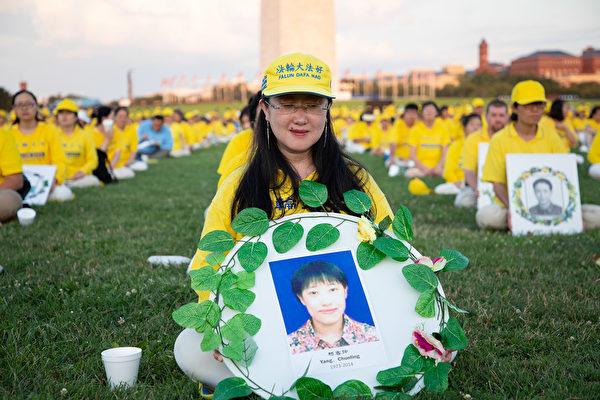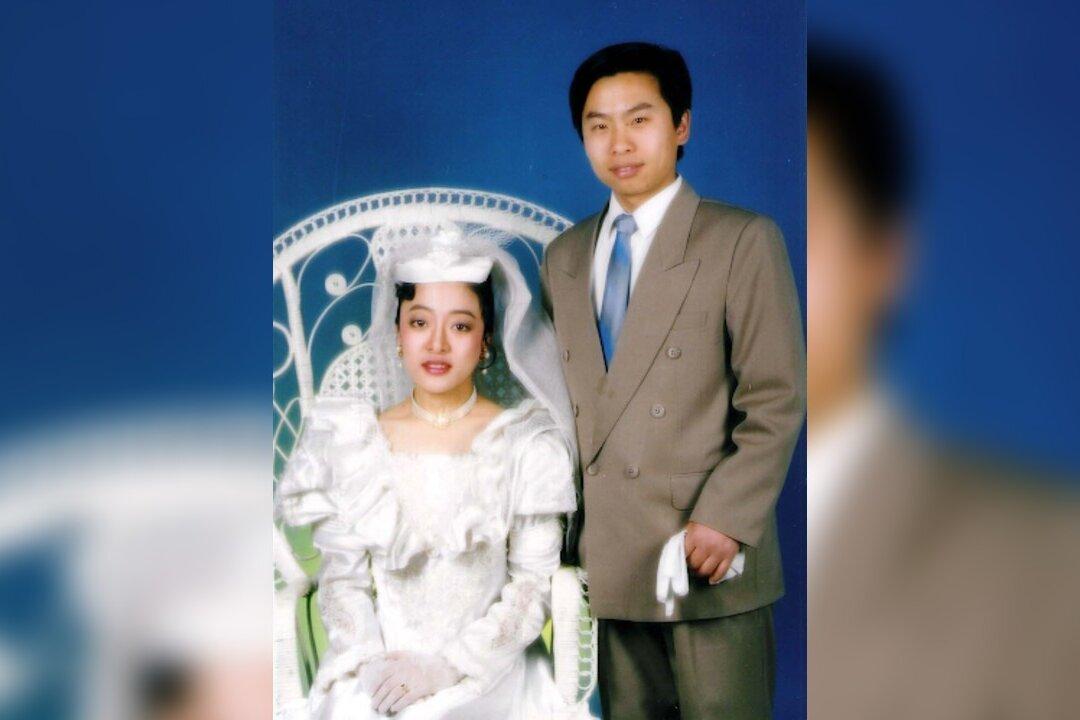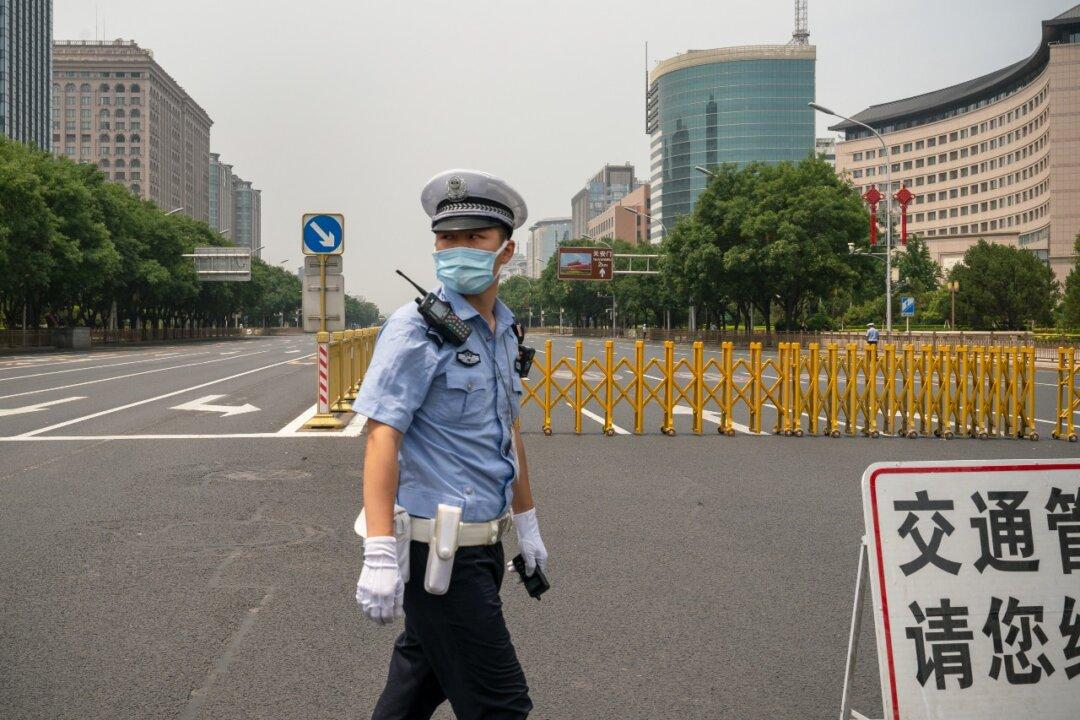NEW YORK—Persecuted by the Chinese regime for their faith, Yang Chunhua’s family of four was torn apart, tormented, and brutalized.
Both her sister and her mother died from injuries and illnesses caused by the torture they were subjected to while imprisoned in China.
Yang’s older sister Chunling, a translator, was part of an eight-person team—that included her sister-in-law, a middle-school teacher—who hijacked a Chinese television broadcast in September 2005 to air a film about the Chinese Communist Party’s (CCP) violent rule over the country.
Within weeks, Chinese police arrested and handed heavy sentences to all of them.
In April 2014, more than a year after being released from prison, Yang’s sister was found dead in a rented apartment. She had died alone on her 40th birthday.
Yang recalled her aged father, Yang Zonghui, breaking the news to her over the phone.
“Your sister’s gone,” he said.
Her body was stiff by the time a friend managed to enter the room. She lived alone as her husband was still in prison at the time.
‘I Wish I Could fly to His Side’
At the time of her sister’s passing, Yang was thousands of miles away from her family home in Dalian, a city in northeastern China. She had left the country three years earlier and was at the time in Indonesia as a United Nations refugee. Yang now lives in the United States.Like her sister and sister-in-law, and the other people behind the television interception, Yang is an adherent of Falun Gong, a spiritual practice that has been persecuted by the Chinese regime since 1999.
Falun Gong is a spiritual meditative discipline rooted in ancient Chinese traditions. It surged in popularity in the 1990s, drawing an estimated 70 million to 100 million adherents. The regime later deemed the practice a threat to its centralized control and launched an eradication campaign in 1999.
Even though she wanted to, Yang could not go home to help her aged father cope with the loss. If she did, Yang would be immediately captured and imprisoned, just like she had been multiple times prior to her escape, she said.
“I’ve been seeing you and your sister around me all the time,” Yang’s father told her over the call.
He had just held his older daughter’s funeral.
“What do you mean?” Yang asked.
“I see the two of you playing by the river.”
Yang and her sister loved to play by the river when they were little. Their father watched them from nearby. That was about four decades ago.
“You two look so happy,” he said.
Yang’s father, who was in his seventies, fell ill shortly after the funeral and was diagnosed with liver cancer.
Years of harassment from the Chinese regime targeting his family traumatized him mentally and physically, Yang said.
“For years, father carried heart medicine on him everywhere he went. Whenever he heard banging noises, he’d panic, thinking it was the police knocking on the door,” Yang wrote in a 2017 memoir published on Minghui.org, a U.S.-based website documenting the CCP’s persecution of Falun Gong.
Memories of Persecution
Ten years before her sister’s death, Yang lost her mother the same way.Yang’s mother Dong Baoxin also practiced Falun Gong. The three of them would go to local parks in Dalian to meditate together.
Dong, a retiree, was put into a “conversion center” that was part of a labor camp in 2001. Guards beat her and forbade her from going to sleep. A guard would stab her with a toothpick whenever she shut her eyelids, she later recounted to her family.
The torture went on for a month, and she refused to renounce her faith.
“We’re upgrading your meal,” the prison guards told Dong one day, according to Yang. Then, they gave her poisoned meat.
When she swallowed, she struggled to breathe, dropped to the floor while foaming at her mouth, and fainted, Yang said.
Dong ended up in the emergency room and stayed in a critical condition even after cycles of stomach cleansing. Fearing legal repercussions, the guards let Yang’s father bring her home after he paid money for a “medical release,” Yang said.
Yang’s mother never fully recovered. She died at home in October 2004.
‘Hang in There’
Two years before her mother’s death, police broke into Yang and her sister’s Dalian apartment where they printed flyers exposing the persecution against Falun Gong. Because Yang refused to comply with the arrest, one police officer shoved her down a flight of stairs, breaking her hips.Yang was put into a detention center, where she was chained to a bed for 30 days and force-fed through a rubber tube plugged in through her nostril and extended into her stomach.
“Every time the guards couldn’t reach all the way in, they would pull the tube and stick it back in repeatedly,” Yang wrote in her memoir. “Blood spilled out of my nose, soaking my face and body.”
One guard sent boiling porridge straight through the tube. Her stomach lining burned, and Yang threw up uncontrollably.
Yang was then transferred to a labor camp. For two years, she went through other forms of physical torture, solitary confinement in a bathroom that would last for days, and up to 15 hours per day of slave labor.
Yang’s sister was also held at the same camp but in a separate cell.
“I briefly saw her from afar a few times,” Yang recalled. “We weren’t allowed to talk or get close. We would silently raise our fists towards each other. It meant ‘hang in there.’”
In the personal account Yang’s sister left behind, she revealed some of the torture she had endured for not giving up her faith.
A guard once grabbed her hair and smashed her onto a wall. Half of her face swelled up. “So you want to hang on to your truth?” he yelled, the account said.
Guards also tied her legs with ropes and cuffed her to a heating pipe. She would stay in this position for days on end, half-unconscious as guards kicked and beat her. She left the labor camp after two years but was jailed again for taking part in the 2005 television interception.
‘I’m the Only One Left’
After Yang was released from the labor camp in 2004, she lost contact with her sister.Because she refused to give up practicing Falun Gong, police would follow her around from time to time, Yang said. But immediately after the 2005 television interception, the surveillance spiked.
“At least two tall plainclothes police tailed me wherever I went,” Yang said.
She didn’t want to lead them to her home, so she stayed at multiple hotels, crashed in friends’ rooms, and slept at train stations.
Yang eventually ran out of money but the police were still on her tail.
She reluctantly sought the help of her elderly father, who took her on a train to travel across China. They stayed in multiple provinces, relying on the help of distant relatives.
He dropped her off at a remote village in central China where the stalking finally stopped. He then went home by himself.
“If it wasn’t for my father protecting me, I would’ve been captured again,” Yang said.
Yang’s father passed away in 2015, succumbing to liver cancer.
“Your father never closed his eyes in his final moments,” a friend told Yang over the phone, she recalled. “He said he wanted to see you.”
“My family, the four of us, we were happy together. I’m the only one left now,” wrote Yang in her memoir.
In 2016, Yang was resettled in the United States; she currently resides in New York state.
“It feels good to be free,” Yang said. Over the past years, she attended many human rights conferences, telling her story of persecution.
“When I left China, I had one wish,” Yang said. “I wanted to become a voice for my fellow Falun Gong practitioners still persecuted. I want to lessen their pain.”
“I don’t want to let my family’s tragedy happen again.”



